

Share
23rd January 2017
03:18pm GMT

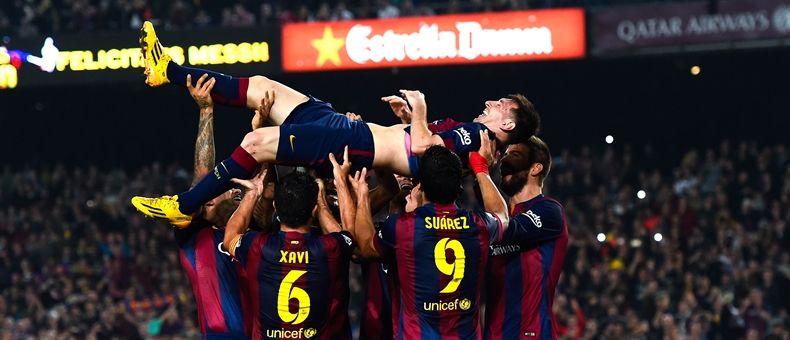 We wondered if the great footballing intellectuals on the continent met regularly in bistros or restaurants to have lively arguments about the philosophy and movement of football. Maybe they all shared a chuckle at the memory of those primitive old style forwards, the big men with no teeth and busted noses?
In this new era of possession football, attackers became all about movement, intellect and improvised brilliance. The position of players was no longer an easy thing to define, they all constantly switched roles. Most importantly, these players controlled the opposition by having total control over the ball.
It was almost like watching an orchestra playing a symphony on a summer's day.
By comparison, our game seemed like a Black Sabbath gig. Noisy, energetic and lots of headbanging in the moshpit.
Our clubs didn’t have the time or patience to work on the philosophy, so we just tried to buy the product. That whole process was complete when Pep arrived in the summer and performed his first miracle, guiding City on a ten-game winning run.
A few months later, he must be wondering why he's here. The pundits are second-guessing everything that he does and his rivals are exploiting Guardiola's devotion to tiki-taka, especially by capitalising on City's mistakes at the back.
We wondered if the great footballing intellectuals on the continent met regularly in bistros or restaurants to have lively arguments about the philosophy and movement of football. Maybe they all shared a chuckle at the memory of those primitive old style forwards, the big men with no teeth and busted noses?
In this new era of possession football, attackers became all about movement, intellect and improvised brilliance. The position of players was no longer an easy thing to define, they all constantly switched roles. Most importantly, these players controlled the opposition by having total control over the ball.
It was almost like watching an orchestra playing a symphony on a summer's day.
By comparison, our game seemed like a Black Sabbath gig. Noisy, energetic and lots of headbanging in the moshpit.
Our clubs didn’t have the time or patience to work on the philosophy, so we just tried to buy the product. That whole process was complete when Pep arrived in the summer and performed his first miracle, guiding City on a ten-game winning run.
A few months later, he must be wondering why he's here. The pundits are second-guessing everything that he does and his rivals are exploiting Guardiola's devotion to tiki-taka, especially by capitalising on City's mistakes at the back.
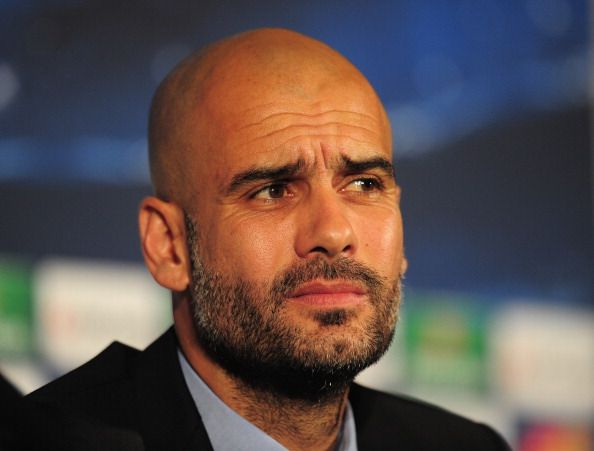 There is a little sense that the English game is now saying "well now, it’s not as easy as it looks Pep, is it?"
Most surprisingly, we are going through a golden time for the species that we once thought were endangered. Yes, the 'big man up front' is alive and well.
Under tiki-taka, it wasn’t just 'the big man up front' who became desperately unfashionable. It was the entire idea of strikers. It seemed that we were being made redundant and being replaced by strange, innovative and mobile creatures called false nines.
A midfielder, a defender, a kitman if he wasn’t busy, they could all be a false-nine if they were in the vicinity and wanted to spend some time dragging defenders away from their positions. In fact, Spain were able to win international tournaments without a recognised striker.
This being said, the false nine didn’t work so well against teams who knew how to park the bus. To make things harder, a new breed of defenders evolved and in this environment of thoughtful and creative centre-halves, some teams lost the art of defending against a big bruiser who outjumped everyone.
These strikers could win the unfashionable long balls and put an elbow in your face but most importantly, they could stick the ball in the back of the net.
There is a little sense that the English game is now saying "well now, it’s not as easy as it looks Pep, is it?"
Most surprisingly, we are going through a golden time for the species that we once thought were endangered. Yes, the 'big man up front' is alive and well.
Under tiki-taka, it wasn’t just 'the big man up front' who became desperately unfashionable. It was the entire idea of strikers. It seemed that we were being made redundant and being replaced by strange, innovative and mobile creatures called false nines.
A midfielder, a defender, a kitman if he wasn’t busy, they could all be a false-nine if they were in the vicinity and wanted to spend some time dragging defenders away from their positions. In fact, Spain were able to win international tournaments without a recognised striker.
This being said, the false nine didn’t work so well against teams who knew how to park the bus. To make things harder, a new breed of defenders evolved and in this environment of thoughtful and creative centre-halves, some teams lost the art of defending against a big bruiser who outjumped everyone.
These strikers could win the unfashionable long balls and put an elbow in your face but most importantly, they could stick the ball in the back of the net.
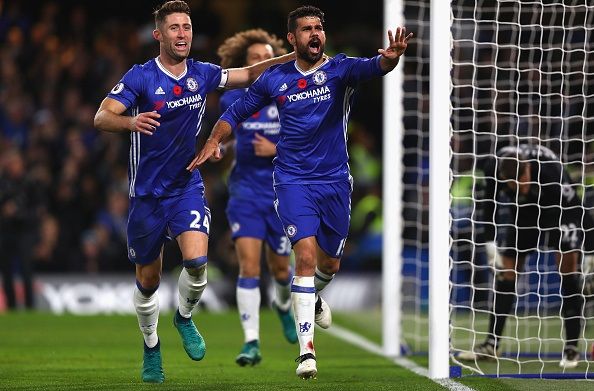 Just when it looked like he would become obsolete, the ‘big man up front’ evolved. In today's game, he has the feet of a midfielder and some of the pace of a more diminutive player. In the English Premier League, the big man is more important than he ever was.
In the last week or so, Andy Carroll has followed up his wonder goal with two more strikes on Saturday, the first of them being a bread and butter ‘get up high and nod it in’ striker's goal.
Elsewhere, Peter Crouch closed in on his one hundredth league goal and Fernando Llorente has suddenly blossomed at Swansea. Even Man United reverted to pinging long balls into Zlatan Ibrahimovic as they chased the game against Liverpool.
Just when it looked like he would become obsolete, the ‘big man up front’ evolved. In today's game, he has the feet of a midfielder and some of the pace of a more diminutive player. In the English Premier League, the big man is more important than he ever was.
In the last week or so, Andy Carroll has followed up his wonder goal with two more strikes on Saturday, the first of them being a bread and butter ‘get up high and nod it in’ striker's goal.
Elsewhere, Peter Crouch closed in on his one hundredth league goal and Fernando Llorente has suddenly blossomed at Swansea. Even Man United reverted to pinging long balls into Zlatan Ibrahimovic as they chased the game against Liverpool.
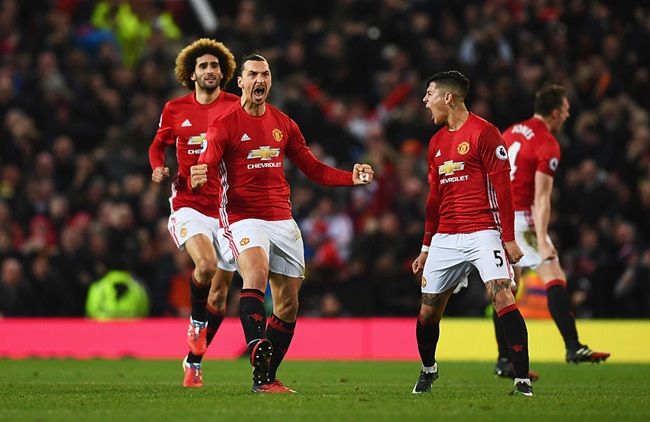 In terms of Sunday's matches, Arsenal were absolutely desperate for a win that would keep them in touch with Chelsea. The Gunners scored their first goal against Burnley with a 'big man’s header' from a corner. Their winner also came from a direct route, a punt over the defence which led to the penalty.
Later that afternoon, 6'4" Gary Cahill had no resistance as he headed home a Fabregas cross to defeat Hull. Diego Costa, as big and imposing as a nightclub bouncer, also treated himself to a goal against Marco Silva's men.
When you factor in the contribution that other strikers like Anichebe, Lukaku, Benteke, Slimani and Giroud have all made, it looks like we're set for a golden age for the big striker. The art of heading is alive and well.
In terms of Sunday's matches, Arsenal were absolutely desperate for a win that would keep them in touch with Chelsea. The Gunners scored their first goal against Burnley with a 'big man’s header' from a corner. Their winner also came from a direct route, a punt over the defence which led to the penalty.
Later that afternoon, 6'4" Gary Cahill had no resistance as he headed home a Fabregas cross to defeat Hull. Diego Costa, as big and imposing as a nightclub bouncer, also treated himself to a goal against Marco Silva's men.
When you factor in the contribution that other strikers like Anichebe, Lukaku, Benteke, Slimani and Giroud have all made, it looks like we're set for a golden age for the big striker. The art of heading is alive and well.
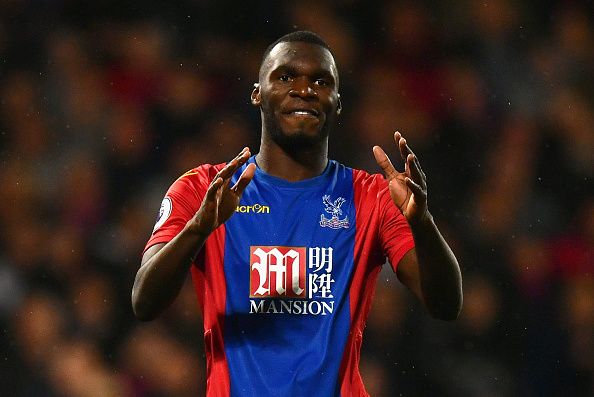 Elsewhere, it all got to be a bit too much for Aitor Karanka at Middlesbrough. The fans at The Riverside like to see a little bit of skill and flair, but when the chips are down, blood and guts are needed.
On Saturday, they watched Andy Carroll outmuscle their defenders and by the second half they’d seen enough. Karanka didn’t react well.
“The atmosphere was awful. They demanded too much. I don’t know how many thousands of people were asking for long balls at the end, but it’s a style we don’t know how to play and the team was broken on the pitch. I was really upset… These players deserve more respect. It’s something we have to fix – and while I’m here we won’t be playing long balls," he said.
Not for the first time, I had to admire Karanka’s guts. When you haven’t won in five matches and the crowd are on your back, it takes a lot to tell them that they are wrong and that you won’t be listening to their advice.
Still though, I worry that he might be wrong. In the English game, teams need different strings to their bow. The early ball and the long ball are weapons to be considered.
The influence of tiki-taka and the wave of thoughtful new managers coming in from the continent has been good for the game. Making tactical changes and asking questions about what you are doing and why you are doing it, are always good things.
This being said, no specific tactic will ever dominate the English game. Football in the Premier League has evolved from different traditions and because the game is played at such a breakneck speed, whether we like it or not, will allow even greater room for error.
Aitor Karanka may have to adapt to it. Pep too. That’s the job that they are paid to do - adapt in order to win games.
Over the course of this pulsating weekend, I learned one thing. Andy Carroll is as far from the false nine as you're likely to find. That might just make him the real deal again.
Elsewhere, it all got to be a bit too much for Aitor Karanka at Middlesbrough. The fans at The Riverside like to see a little bit of skill and flair, but when the chips are down, blood and guts are needed.
On Saturday, they watched Andy Carroll outmuscle their defenders and by the second half they’d seen enough. Karanka didn’t react well.
“The atmosphere was awful. They demanded too much. I don’t know how many thousands of people were asking for long balls at the end, but it’s a style we don’t know how to play and the team was broken on the pitch. I was really upset… These players deserve more respect. It’s something we have to fix – and while I’m here we won’t be playing long balls," he said.
Not for the first time, I had to admire Karanka’s guts. When you haven’t won in five matches and the crowd are on your back, it takes a lot to tell them that they are wrong and that you won’t be listening to their advice.
Still though, I worry that he might be wrong. In the English game, teams need different strings to their bow. The early ball and the long ball are weapons to be considered.
The influence of tiki-taka and the wave of thoughtful new managers coming in from the continent has been good for the game. Making tactical changes and asking questions about what you are doing and why you are doing it, are always good things.
This being said, no specific tactic will ever dominate the English game. Football in the Premier League has evolved from different traditions and because the game is played at such a breakneck speed, whether we like it or not, will allow even greater room for error.
Aitor Karanka may have to adapt to it. Pep too. That’s the job that they are paid to do - adapt in order to win games.
Over the course of this pulsating weekend, I learned one thing. Andy Carroll is as far from the false nine as you're likely to find. That might just make him the real deal again.
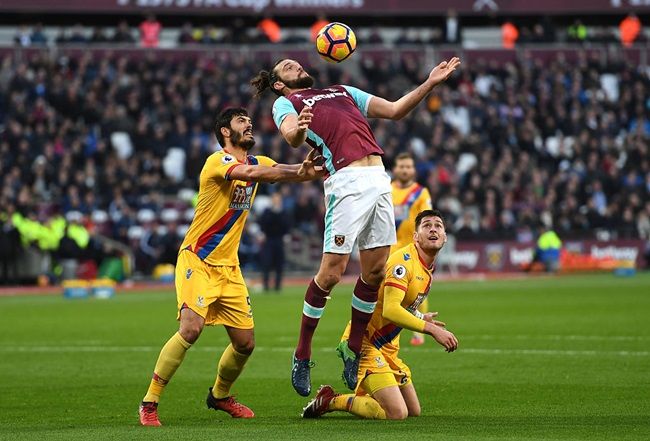 Niall Quinn is a former Arsenal, Manchester City, Sunderland and Republic of Ireland striker. He currently works as a pundit and co-commentator for Sky Sports, and also writes for Sportsvibe.
Niall Quinn is a former Arsenal, Manchester City, Sunderland and Republic of Ireland striker. He currently works as a pundit and co-commentator for Sky Sports, and also writes for Sportsvibe.Explore more on these topics:

Sports | Joe.ie
sport